Values And Norms Quotes & Sayings
Enjoy reading and share 33 famous quotes about Values And Norms with everyone.
Top Values And Norms Quotes
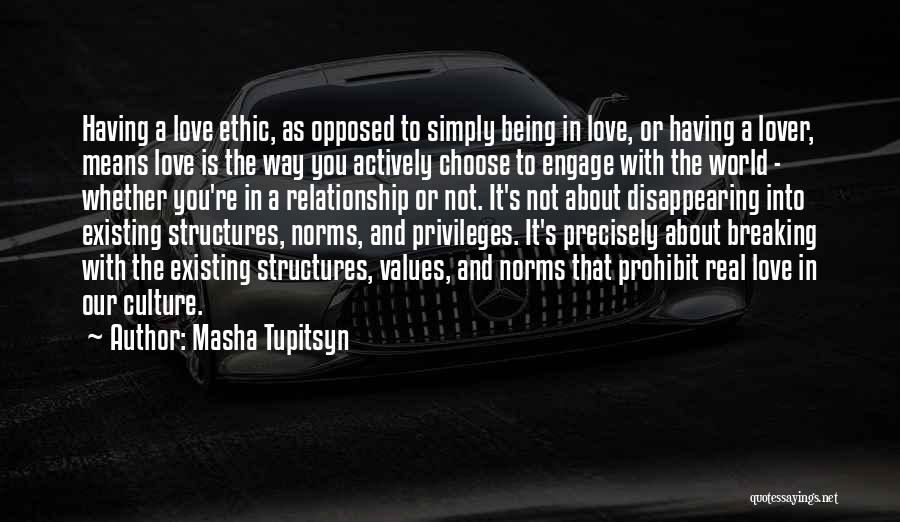
Having a love ethic, as opposed to simply being in love, or having a lover, means love is the way you actively choose to engage with the world - whether you're in a relationship or not. It's not about disappearing into existing structures, norms, and privileges. It's precisely about breaking with the existing structures, values, and norms that prohibit real love in our culture. — Masha Tupitsyn
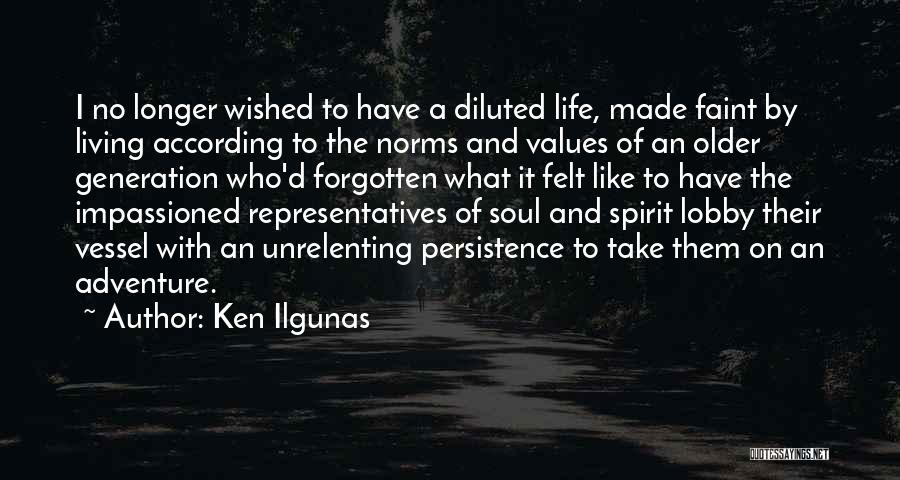
I no longer wished to have a diluted life, made faint by living according to the norms and values of an older generation who'd forgotten what it felt like to have the impassioned representatives of soul and spirit lobby their vessel with an unrelenting persistence to take them on an adventure. — Ken Ilgunas

What conditions are usually necessary for outgroups to be mistreated? Activation of a
social identity leads to such negative outcomes after two conditions are met. First, ingroup members must believe that a common set of norms and values apply to both themselves and to members of the outgroup. Second, the ingroup must see its values as the only acceptable values, so that their values overwhelm those of the outgroup and are the ones that should guide both themselves and the outgroup. The combination of these two factors leads the ingroup to perceive members of the outgroup as deviant, morally inferior, and a potential threat to ingroup values. — Kristin J. Anderson
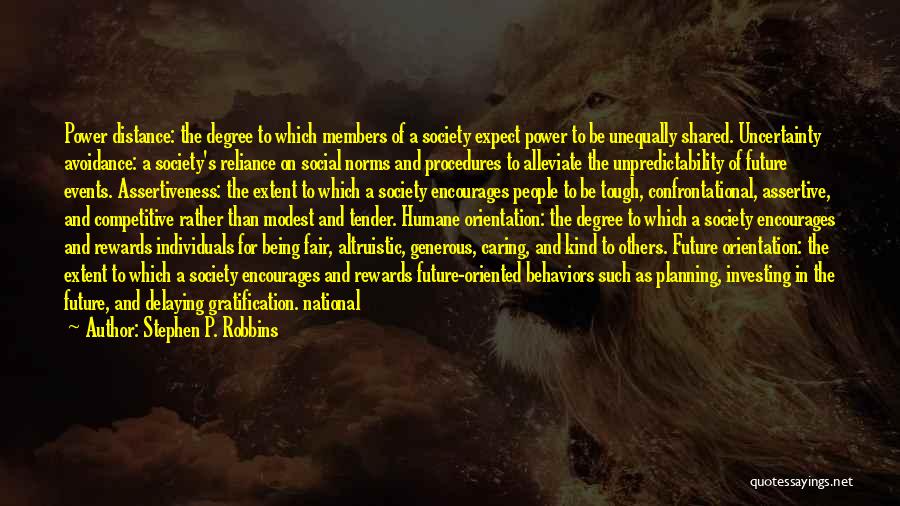
Power distance: the degree to which members of a society expect power to be unequally shared. Uncertainty avoidance: a society's reliance on social norms and procedures to alleviate the unpredictability of future events. Assertiveness: the extent to which a society encourages people to be tough, confrontational, assertive, and competitive rather than modest and tender. Humane orientation: the degree to which a society encourages and rewards individuals for being fair, altruistic, generous, caring, and kind to others. Future orientation: the extent to which a society encourages and rewards future-oriented behaviors such as planning, investing in the future, and delaying gratification. national culture The values and attitudes shared — Stephen P. Robbins
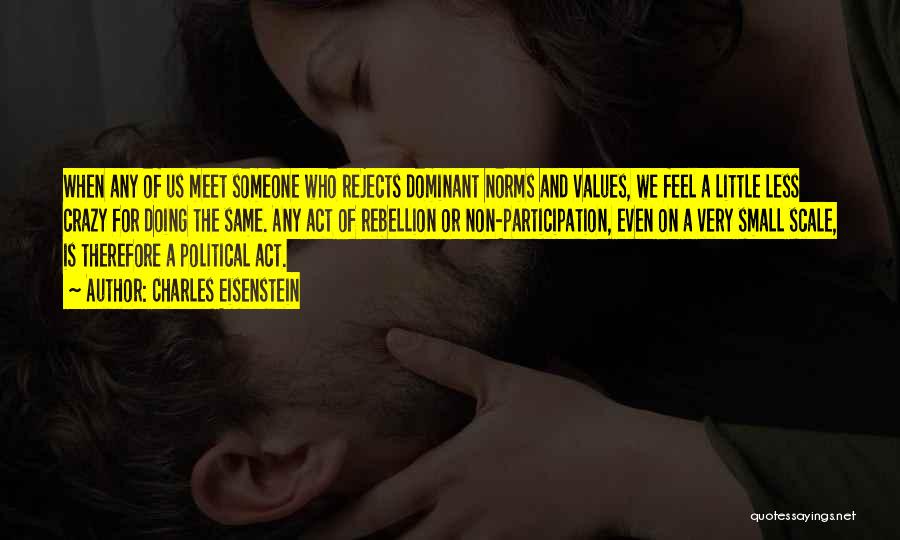
When any of us meet someone who rejects dominant norms and values, we feel a little less crazy for doing the same. Any act of rebellion or non-participation, even on a very small scale, is therefore a political act. — Charles Eisenstein
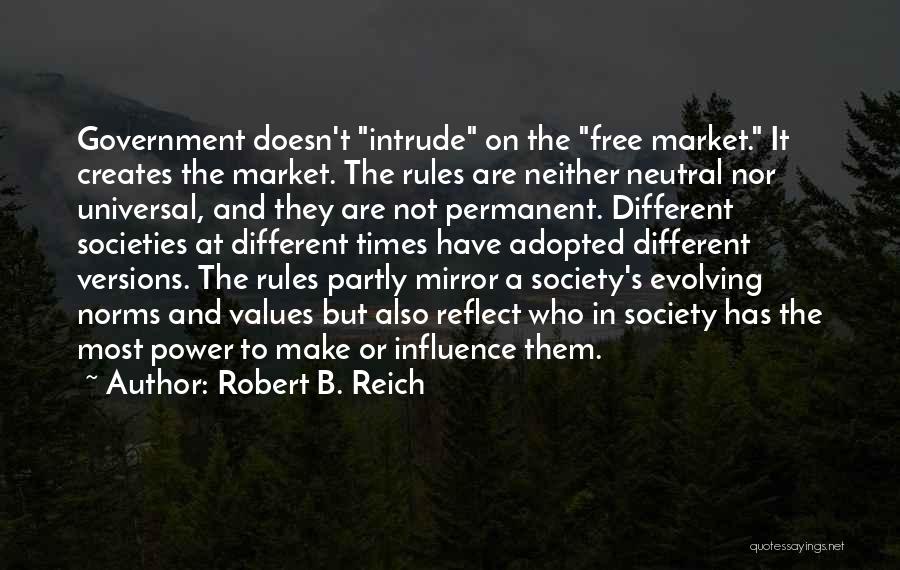
Government doesn't "intrude" on the "free market." It creates the market. The rules are neither neutral nor universal, and they are not permanent. Different societies at different times have adopted different versions. The rules partly mirror a society's evolving norms and values but also reflect who in society has the most power to make or influence them. — Robert B. Reich

The key is to be true to your community's norms and values. You can't just force yourself on people and try to sell them something they don't want - that's good advice for marketers generally, but particularly on community-driven sites like MySpace. You have to find ways to add value to your members' lives while being consistent with your brand's identity. — Chris DeWolfe
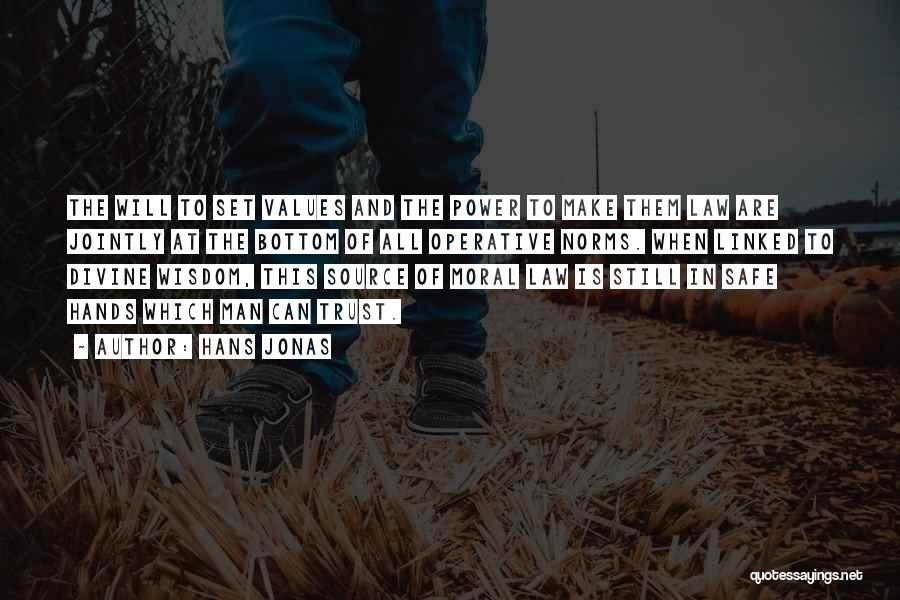
The will to set values and the power to make them law are jointly at the bottom of all operative norms. When linked to divine wisdom, this source of moral law is still in safe hands which man can trust. — Hans Jonas
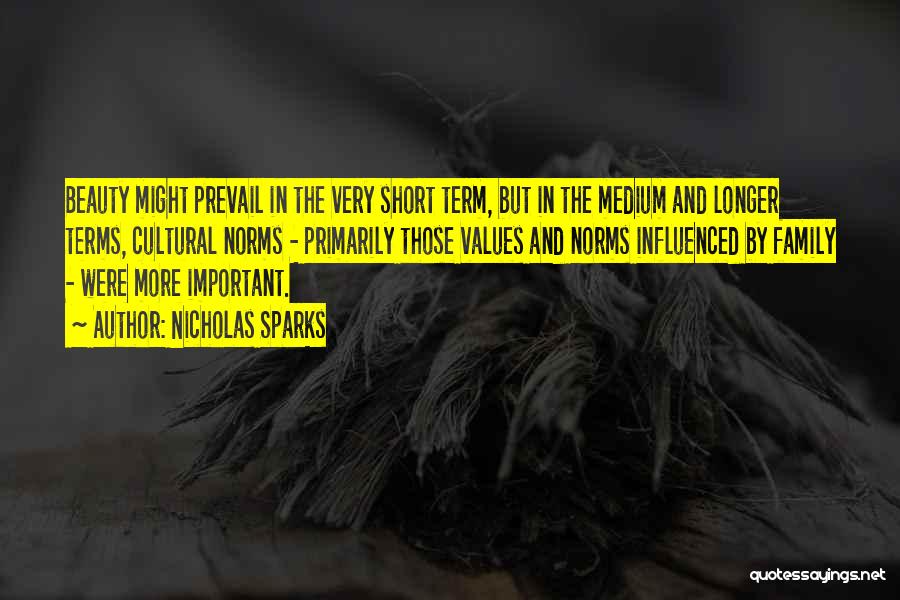
Beauty might prevail in the very short term, but in the medium and longer terms, cultural norms - primarily those values and norms influenced by family - were more important. — Nicholas Sparks
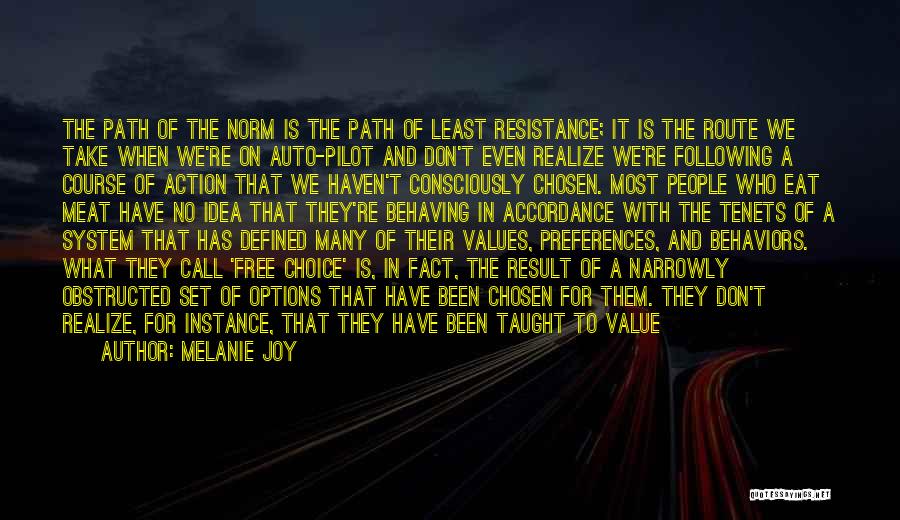
The path of the norm is the path of least resistance; it is the route we take when we're on auto-pilot and don't even realize we're following a course of action that we haven't consciously chosen. Most people who eat meat have no idea that they're behaving in accordance with the tenets of a system that has defined many of their values, preferences, and behaviors. What they call 'free choice' is, in fact, the result of a narrowly obstructed set of options that have been chosen for them. They don't realize, for instance, that they have been taught to value human life so far above certain forms of nonhuman life that it seems appropriate for their taste preferences to supersede other species' preference for survival. — Melanie Joy
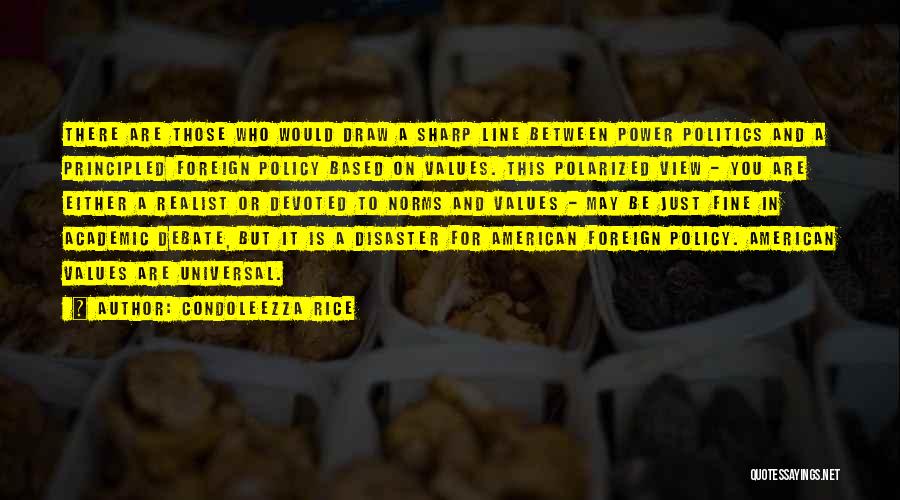
There are those who would draw a sharp line between power politics and a principled foreign policy based on values. This polarized view - you are either a realist or devoted to norms and values - may be just fine in academic debate, but it is a disaster for American foreign policy. American values are universal. — Condoleezza Rice

Advertising is about norms and values, aspirations and prejudices. It is about culture. — Anil Ambani

When it comes to dying and the risks of a bad death, does our responsibility as doctors override cultural values? Is it ever acceptable to bypass cultural norms and expectations in an attempt to get to the human truth? While in many cultures the tradition is to work through the family rather than talk directly to the patient during the dying process, the potential for harm is great, and patients may unintentionally be held hostage by their families. — Jessica Nutik Zitter
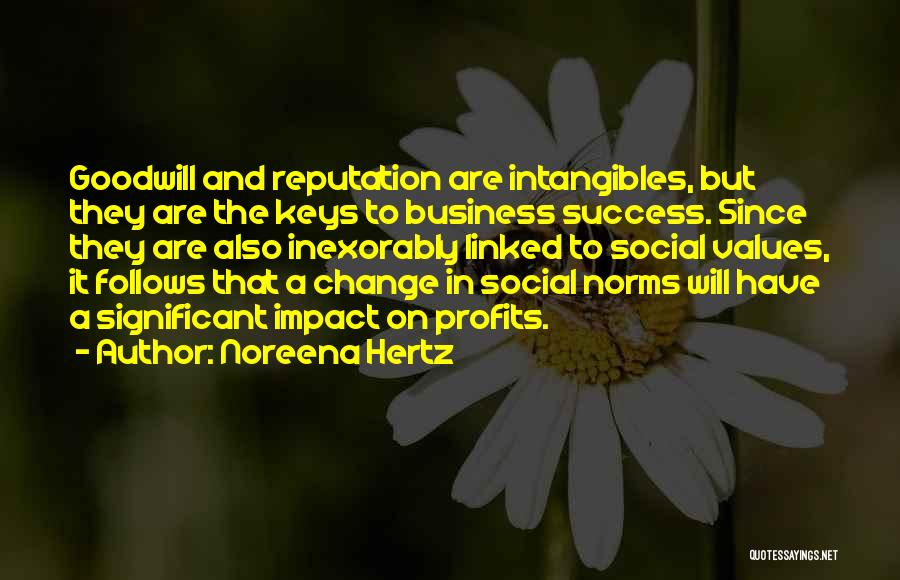
Goodwill and reputation are intangibles, but they are the keys to business success. Since they are also inexorably linked to social values, it follows that a change in social norms will have a significant impact on profits. — Noreena Hertz

There are five key characteristics that will tend to explain how quickly an innovation is adopted. They are (in order of importance):
1.Relative advantage is whether the innovation is better than what is out there already. This can be in effectiveness, economic or even prestige terms.
2.Compatibility is the extent that an innovation is consistent with existing values and norms.
3.Simplicity is the degree to which innovations are perceived to be easy to understand and use.
4.Trialability is the extent to which innovations can be experimented with on a limited basis. Trialability is particularly important to early adopters, as they have no vicarious experience to draw on.
5.Observability is the extent to which the results of an innovation are visible to others. — Gary Johnson
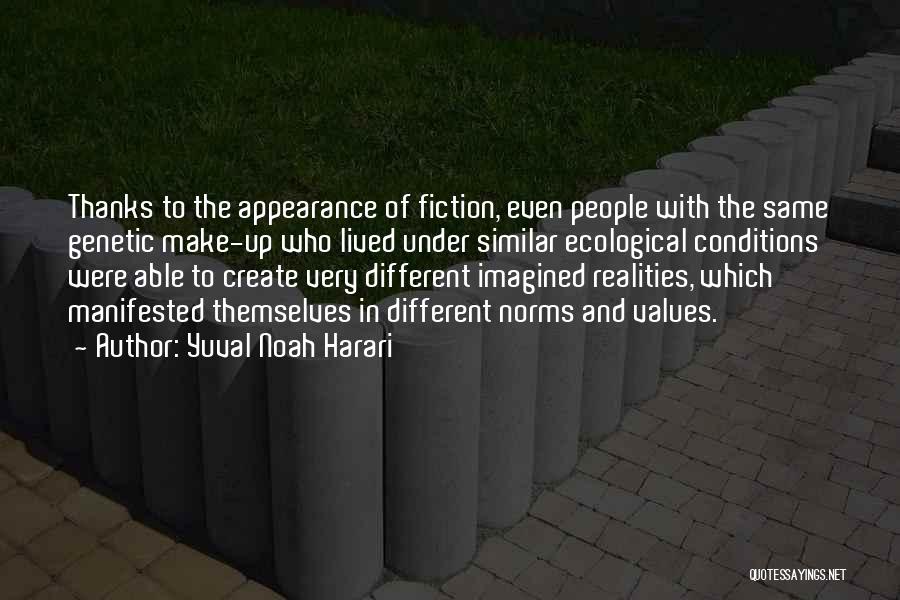
Thanks to the appearance of fiction, even people with the same genetic make-up who lived under similar ecological conditions were able to create very different imagined realities, which manifested themselves in different norms and values. — Yuval Noah Harari
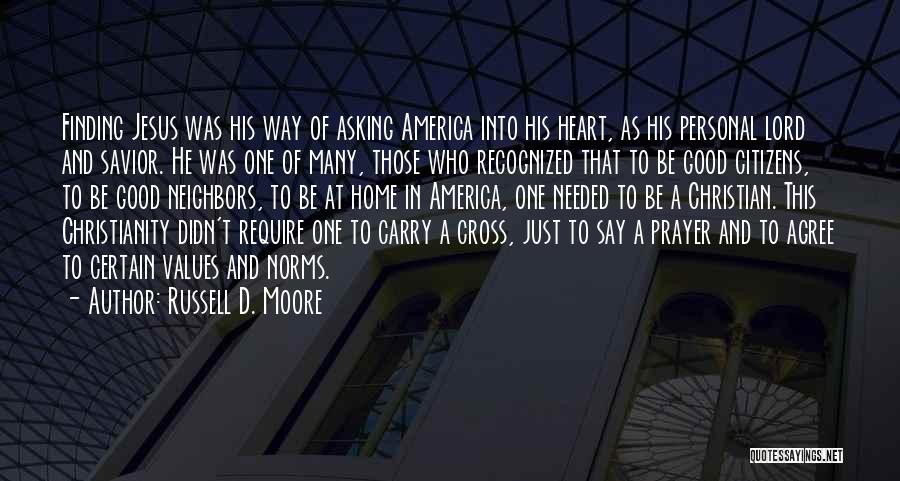
Finding Jesus was his way of asking America into his heart, as his personal lord and savior. He was one of many, those who recognized that to be good citizens, to be good neighbors, to be at home in America, one needed to be a Christian. This Christianity didn't require one to carry a cross, just to say a prayer and to agree to certain values and norms. — Russell D. Moore
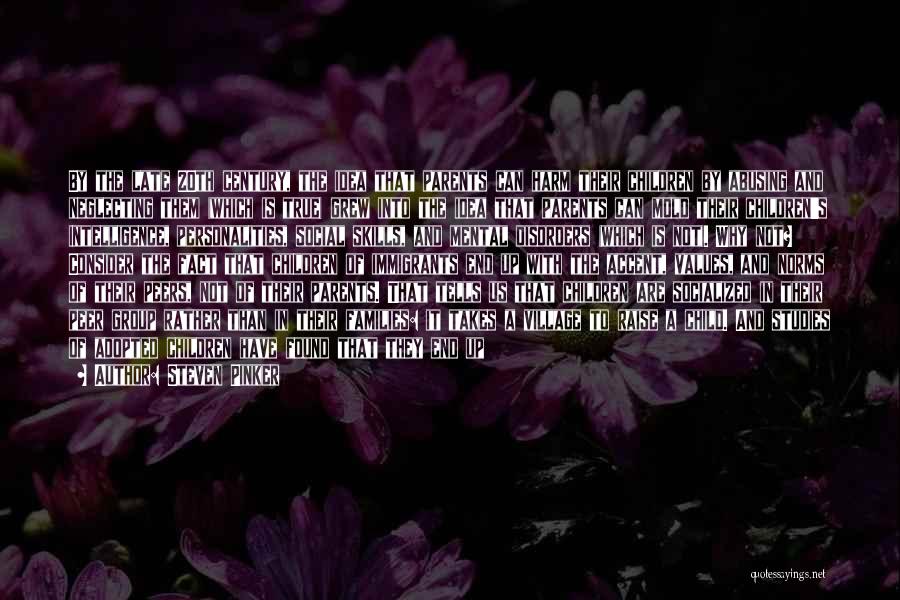
By the late 20th century, the idea that parents can harm their children by abusing and neglecting them (which is true) grew into the idea that parents can mold their children's intelligence, personalities, social skills, and mental disorders (which is not). Why not? Consider the fact that children of immigrants end up with the accent, values, and norms of their peers, not of their parents. That tells us that children are socialized in their peer group rather than in their families: it takes a village to raise a child. And studies of adopted children have found that they end up with personalities and IQ scores that are correlated with those of their biological siblings but uncorrelated with those of their adopted siblings. That tells us that adult personality and intelligence are shaped by genes, and also by chance (since the correlations are far from perfect, even among identical twins), but are not shaped by parents, at least not by anything they do with all their children. — Steven Pinker
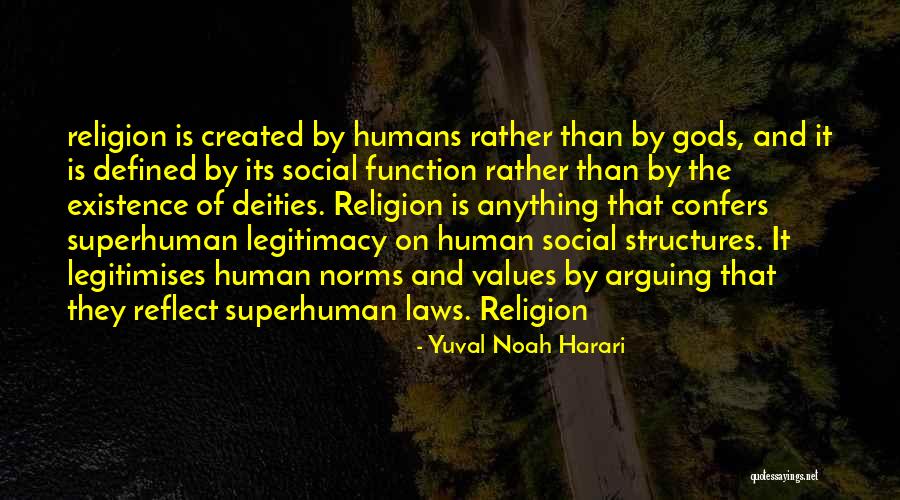
religion is created by humans rather than by gods, and it is defined by its social function rather than by the existence of deities. Religion is anything that confers superhuman legitimacy on human social structures. It legitimises human norms and values by arguing that they reflect superhuman laws. Religion — Yuval Noah Harari

Even what may have seemed, in retrospect, like minor quibbles - over the particular wording of sharia clauses, for example - reflected fundamental divides over the boundaries, limits, and purpose of the nation-state. For liberals, certain rights and freedoms are, by definition, nonnegotiable. They envision the state as a neutral arbiter. Meanwhile, even those Islamists who have little interest in legislating morality see the state as a promoter of a certain set of religious and moral values, through the soft power of the state machinery, the educational system, and the media. For them, these conservative values are not ideologically driven but represent a self-evident popular consensus around the role of religion in public life. The will of the people, particularly when it coincides with the will of God, takes precedence over any presumed international human rights norms. — Shadi Hamid

Because the soul has such deep roots in personal and social life and its values run so contrary to modern concerns, caring for the soul may well turn out to be a radical act, a challenge to accepted norms. — Thomas More

Any minority's right to be different must be respected, but the right of the majority must not be questioned. Without the values at the core of Christianity and other world religions, without moral norms that have been shaped over millennia, people will inevitably lose their human dignity. — Vladimir Putin
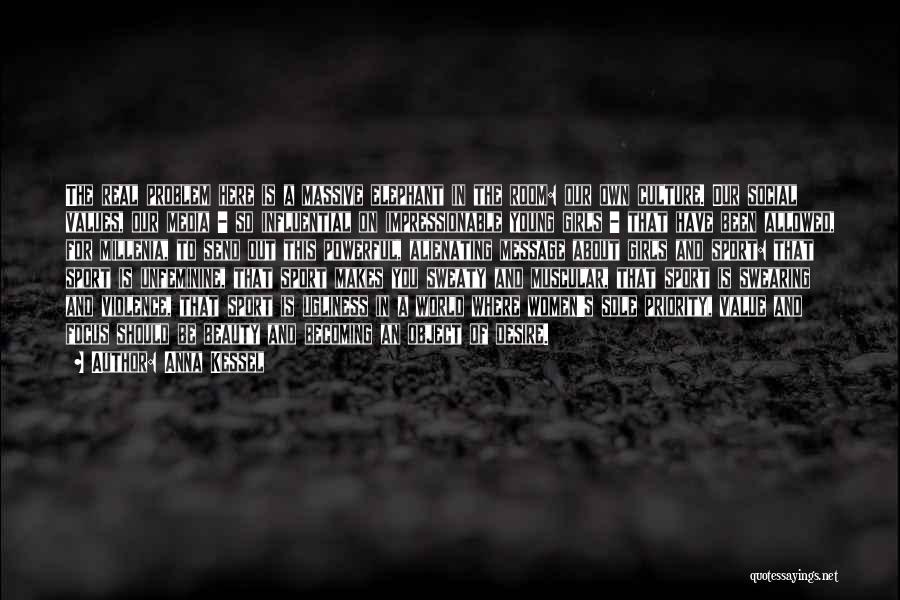
The real problem here is a massive elephant in the room: our own culture. Our social values, our media - so influential on impressionable young girls - that have been allowed, for millenia, to send out this powerful, alienating message about girls and sport: that sport is unfeminine, that sport makes you sweaty and muscular, that sport is swearing and violence, that sport is ugliness in a world where women's sole priority, value and focus should be beauty and becoming an object of desire. — Anna Kessel
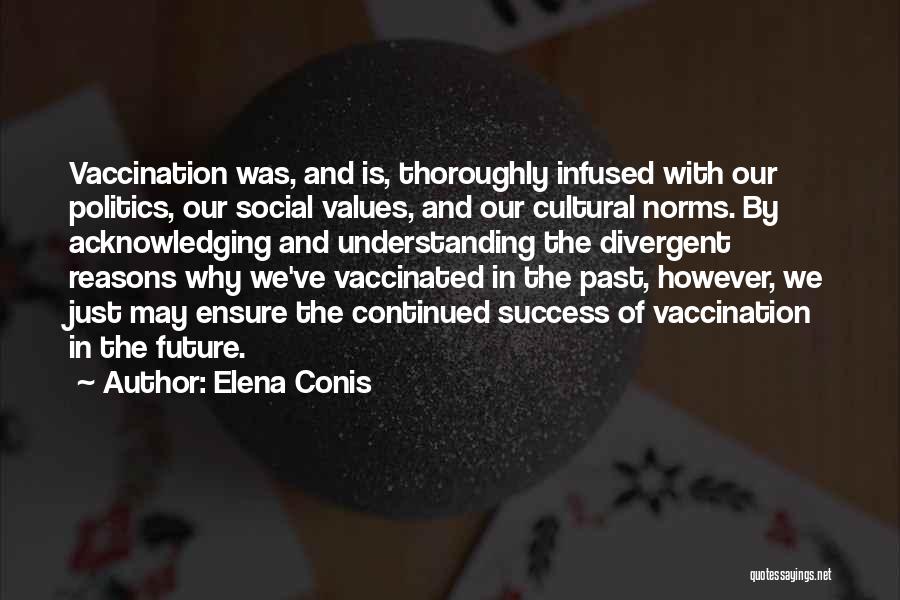
Vaccination was, and is, thoroughly infused with our politics, our social values, and our cultural norms. By acknowledging and understanding the divergent reasons why we've vaccinated in the past, however, we just may ensure the continued success of vaccination in the future. — Elena Conis
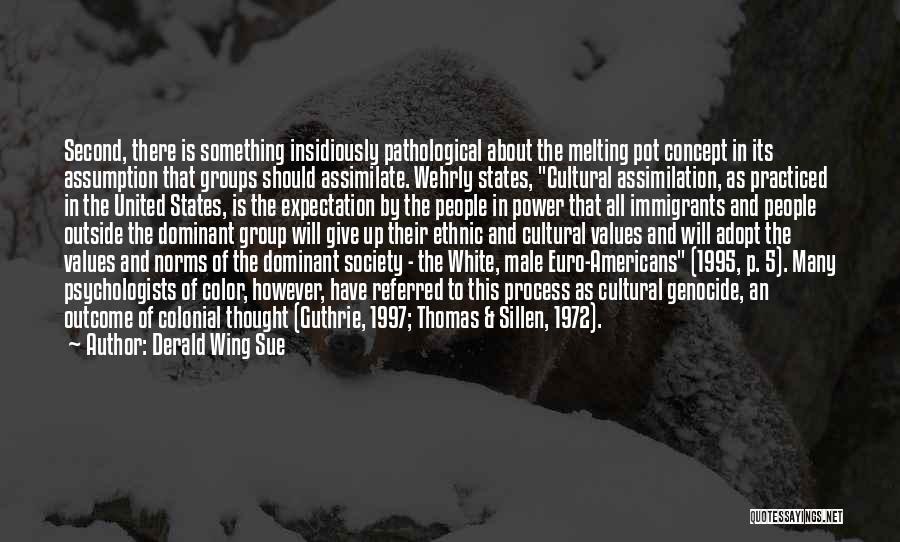
Second, there is something insidiously pathological about the melting pot concept in its assumption that groups should assimilate. Wehrly states, "Cultural assimilation, as practiced in the United States, is the expectation by the people in power that all immigrants and people outside the dominant group will give up their ethnic and cultural values and will adopt the values and norms of the dominant society - the White, male Euro-Americans" (1995, p. 5). Many psychologists of color, however, have referred to this process as cultural genocide, an outcome of colonial thought (Guthrie, 1997; Thomas & Sillen, 1972). — Derald Wing Sue
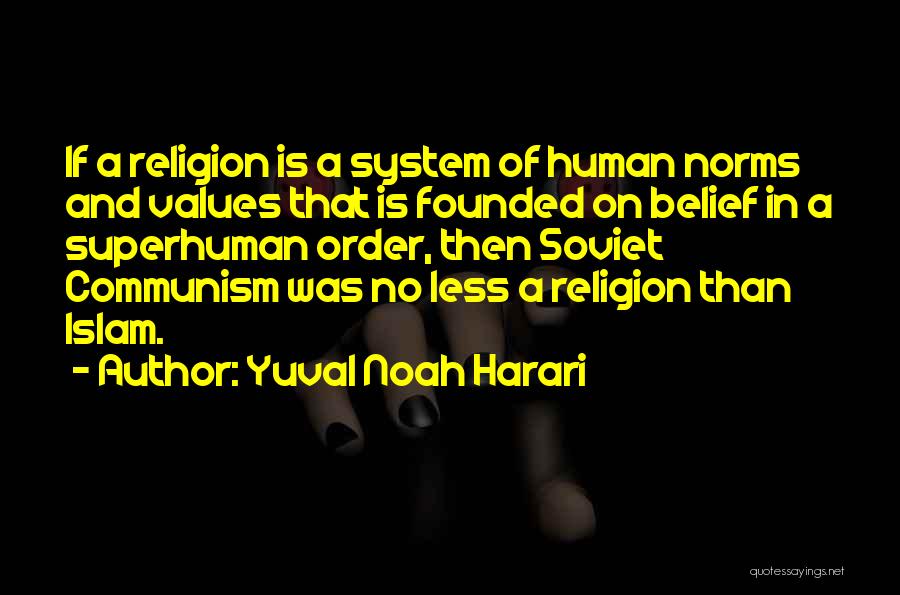
If a religion is a system of human norms and values that is founded on belief in a superhuman order, then Soviet Communism was no less a religion than Islam. — Yuval Noah Harari
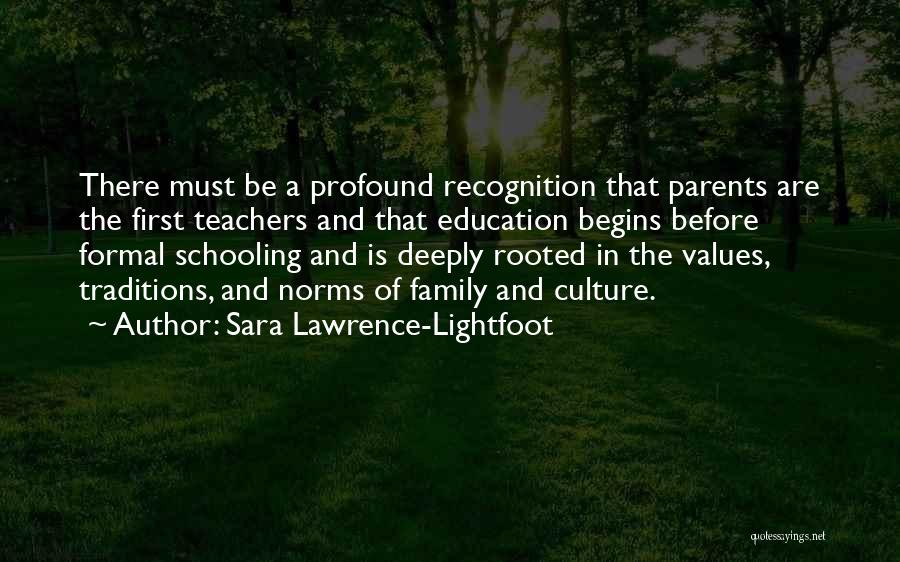
There must be a profound recognition that parents are the first teachers and that education begins before formal schooling and is deeply rooted in the values, traditions, and norms of family and culture. — Sara Lawrence-Lightfoot
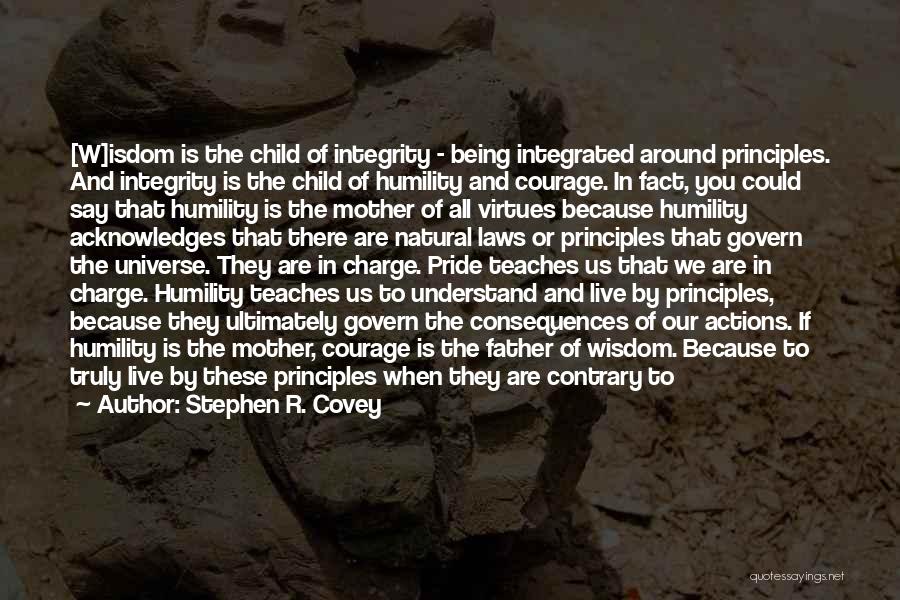
[W]isdom is the child of integrity - being integrated around principles. And integrity is the child of humility and courage. In fact, you could say that humility is the mother of all virtues because humility acknowledges that there are natural laws or principles that govern the universe. They are in charge. Pride teaches us that we are in charge. Humility teaches us to understand and live by principles, because they ultimately govern the consequences of our actions. If humility is the mother, courage is the father of wisdom. Because to truly live by these principles when they are contrary to social mores, norms and values takes enormous courage. — Stephen R. Covey

There are certain functions that the family performs. In the first place the family provides society with an orderly means of reproduction, while at the same time the norms of marriage control the potentially disruptive forces of sexuality. Second, the family provides physical and economic support for the child during the early years of dependence. The child receives its primary socialization in the family, learning the essential ideas and values required for adult life. — Adrian Wilson
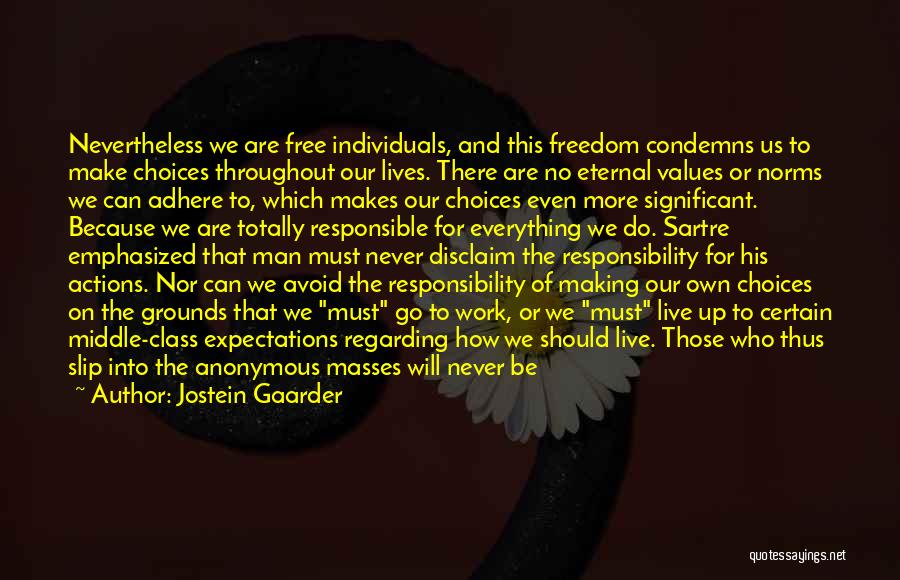
Nevertheless we are free individuals, and this freedom condemns us to make choices throughout our lives. There are no eternal values or norms we can adhere to, which makes our choices even more significant. Because we are totally responsible for everything we do. Sartre emphasized that man must never disclaim the responsibility for his actions. Nor can we avoid the responsibility of making our own choices on the grounds that we "must" go to work, or we "must" live up to certain middle-class expectations regarding how we should live. Those who thus slip into the anonymous masses will never be other than members of the impersonal flock, having fled from themselves into self-deception. On the other hand our freedom obliges us to make something of ourselves, to live "authentically" or "truly". — Jostein Gaarder
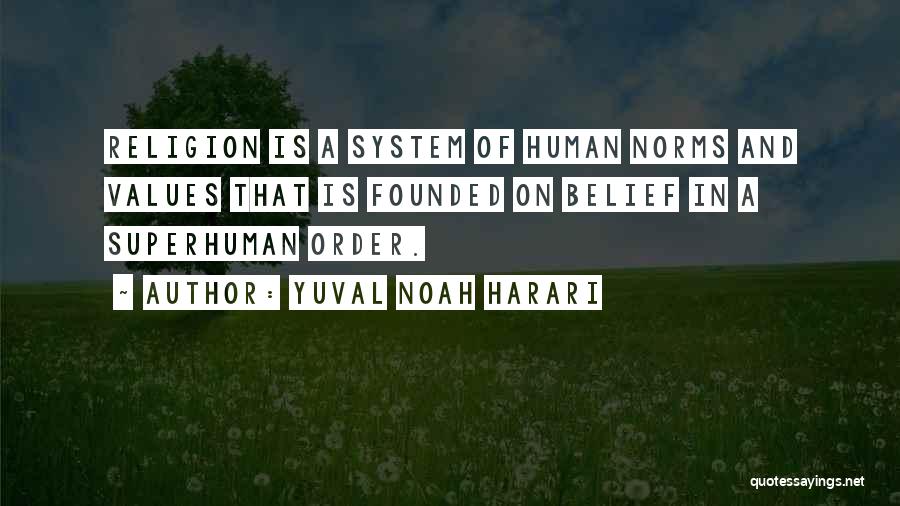
Religion is a system of human norms and values that is founded on belief in a superhuman order. — Yuval Noah Harari
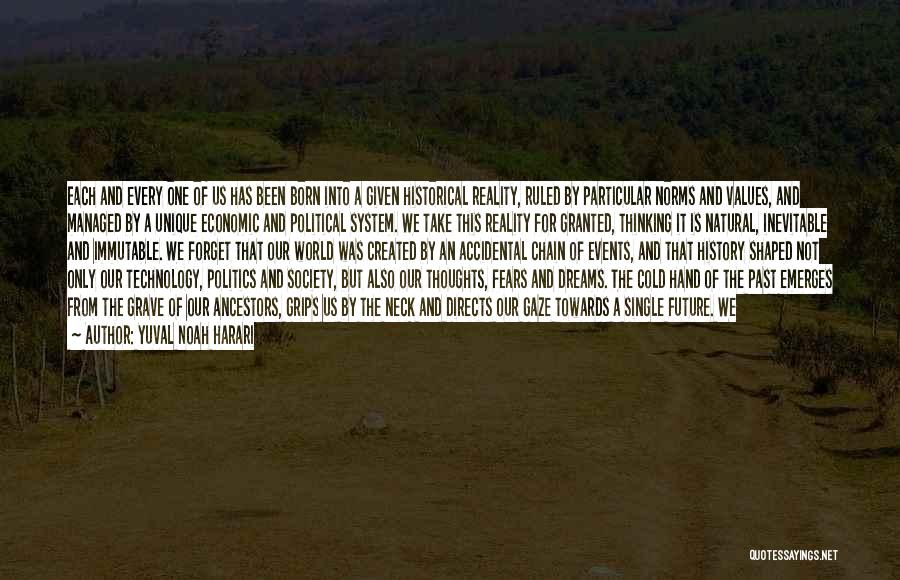
Each and every one of us has been born into a given historical reality, ruled by particular norms and values, and managed by a unique economic and political system. We take this reality for granted, thinking it is natural, inevitable and immutable. We forget that our world was created by an accidental chain of events, and that history shaped not only our technology, politics and society, but also our thoughts, fears and dreams. The cold hand of the past emerges from the grave of our ancestors, grips us by the neck and directs our gaze towards a single future. We have felt that grip from the moment we were born, so we assume that it is a natural and inescapable part of who we are. Therefore we seldom try to shake ourselves free, and envision alternative futures. — Yuval Noah Harari
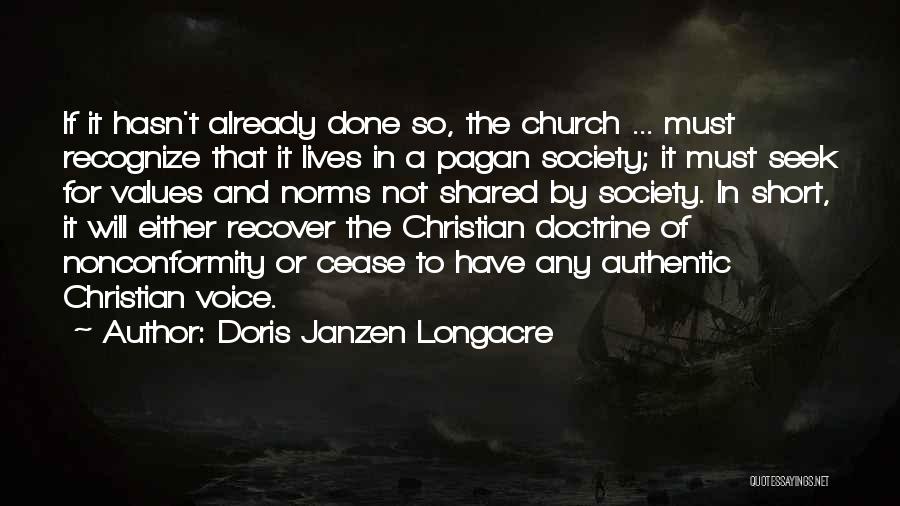
If it hasn't already done so, the church ... must recognize that it lives in a pagan society; it must seek for values and norms not shared by society. In short, it will either recover the Christian doctrine of nonconformity or cease to have any authentic Christian voice. — Doris Janzen Longacre





